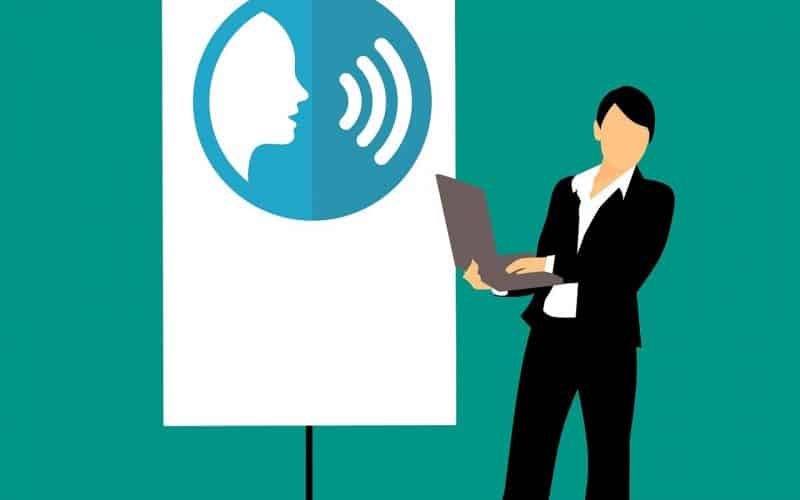We all know that communication is essential to having successful relationships, but it’s not easy. It takes time and practice to improve your communication skills. It’s worth the effort, though, because it can make a huge difference in your life. In this article, we’ll discuss the reason why you’ll need to improve your communication skills, the top five tips for strong communication, common communication barriers, and how to improve your body language and listen effectively. We’ll also discuss how to show empathy in your communication, how to manage stress and negative emotions, and how to ask questions.
Why You Need To Improve Your Communication Skills
The benefits of improving your communication skills can be seen in almost every area of life. Strong communication skills can help you build meaningful relationships with people, advance your career, and increase your self-confidence. All of these things can have a huge impact on your overall well-being.
When you are able to communicate effectively with others, you are able to build trust and understanding. This can help you resolve conflicts more quickly and easily, and it can also help you to be a better leader and team player. Communication is also essential in any professional setting, and having strong communication skills can help you to get ahead in your career.
Finally, having strong communication skills can help to boost your self-confidence. When you are able to express yourself clearly and confidently, you can feel more comfortable in social situations, and this can help you to make a positive impression.
The Top 5 Tips for Strong Communication
So, what are the top five tips for strong communication? Here they are:
- Listen actively. Listening is more than just hearing what someone is saying. It requires giving your full attention to the person speaking and showing that you are truly engaged in the conversation.
- Make eye contact. Making eye contact is an important part of communication and it shows that you are paying attention and that you respect the other person.
- Ask questions. Asking questions is a great way to show that you are interested in what the other person is saying and to make sure you fully understand.
- Be aware of your body language. Your body language can have a big impact on how you come across in a conversation. Make sure you are conveying the right message with your posture, facial expressions, and gestures.
- Use positive language. Positive language can go a long way in helping to create a positive and supportive atmosphere. Instead of saying something negative, try to focus on the positive aspects of the situation.
Common Communication Barriers
Unfortunately, there are many common communication barriers that can make it difficult to communicate effectively. These can include things like cultural differences, language barriers, and even technology. It’s important to be aware of these barriers and to find ways to overcome them in order to ensure that your message is being heard and understood.
Another common barrier to communication is stress. When we are feeling stressed, it can be hard to concentrate on what someone is saying and to respond in a meaningful way. It’s important to be aware of this and to take steps to manage your stress before it gets out of hand.
Finally, negative emotions can also be a barrier to effective communication. When we are feeling angry, frustrated, or sad, it can be hard to focus on what the other person is saying and to respond in a constructive way. It’s important to take a step back and find a way to manage your emotions before trying to continue the conversation.
How to Improve Your Body Language In Communication Skills
Body language is an important part of communication, so it’s important to be aware of how you come across to others. Make sure you are maintaining good posture and that you are making eye contact with the other person. Additionally, try to be aware of your facial expressions and gestures and make sure they are conveying the right message.
It’s also important to be aware of the other person’s body language. Try to pay attention to their posture, facial expressions, and gestures. This can help you to better understand what they are trying to convey and to respond in a meaningful way.
How to Listen Effectively
Listening is an important part of any conversation, so it’s important to be an active listener. This means paying attention to what the other person is saying and showing that you are engaged in the conversation. Make sure you are looking at the other person, making eye contact, and nodding your head to show that you are listening.
It’s also important to avoid interrupting the other person. Allow them to finish what they are saying and give them time to think before responding. Additionally, try to ask questions to show that you are interested in what they are saying and that you care about their opinion.
How to Show Empathy in Your Communication
Showing empathy is an important part of any conversation and can help to create a safe and supportive atmosphere. To show empathy, try to put yourself in the other person’s shoes and understand how they might be feeling. Additionally, try to be understanding of their perspective and to show that you are listening and that you care about what they are saying.
It’s also important to avoid making assumptions about the other person’s feelings or experiences. Make sure you are asking questions and listening to their perspective before jumping to conclusions. This can help to create an environment of mutual understanding and respect.
How to Manage Stress and Negative Emotions
It can be difficult to communicate effectively if you are feeling stressed or overwhelmed. It’s important to take steps to manage your stress and negative emotions before trying to engage in a conversation.
One way to manage stress is to take some time for yourself. This can be anything from going for a walk or listening to music to doing something creative or meditating. This can help to clear your mind and give you a chance to relax and refocus.
Additionally, it’s important to be aware of your body language and to take steps to stay calm and composed. Make sure you are sitting up straight, taking deep breaths, and speaking in a slow and steady voice. This can help to create a safe and supportive atmosphere and make it easier to communicate effectively.
How to Use Body Language and Tone of Voice
Body language and tone of voice are important parts of any conversation. Make sure you are speaking in a slow and steady voice and that you are using your hands and facial expressions to convey your message. Additionally, try to be aware of the other person’s body language and tone of voice and make sure you are responding in a way that shows you are listening and that you care about what they are saying.
It’s also important to be aware of how your body language and tone of voice can affect the other person. If you are speaking in a loud or aggressive tone, it can create an uncomfortable atmosphere and make it difficult to communicate effectively.
How to Ask Questions
Asking questions is an important part of any conversation, so it’s important to be aware of how you are phrasing your questions. Make sure you are using open-ended questions that encourage the other person to share their thoughts and feelings. Additionally, try to ask follow-up questions to show that you are listening and that you care about what they have to say.
It’s also important to be aware of how your questions can affect the other person. If you are asking too many questions or if the questions are too personal, it can make the other person feel uncomfortable. Make sure you are respecting the other person’s boundaries and that you are allowing them to choose how much they want to share.
How to Communicate in a Variety of Contexts
It’s important to be aware of the different contexts in which you are communicating. Different contexts require different communication styles, so it’s important to be aware of the expectations and to adjust your communication style accordingly.
For example, if you are communicating in a professional context, it’s important to be aware of the industry standards and to use appropriate language. Additionally, it’s important to be aware of the other person’s role and to make sure you are speaking in a respectful way.
On the other hand, if you are communicating in a more informal setting, it’s important to be aware of the social norms and to speak in a friendly and casual way. Additionally, it’s important to be aware of the other person’s feelings and to make sure you are not saying anything that could be offensive or hurtful.
How to Constructively Handle Conflict
It’s important to be aware of how to constructively handle conflict in any conversation. It’s important to stay calm and composed and to focus on finding a resolution that works for both parties. Additionally, it’s important to be aware of the other person’s perspective and to be respectful of their feelings.
It’s also important to be aware of how your words and body language can affect the other person. Make sure you are speaking in a calm and respectful tone and that you are using open-ended questions to encourage the other person to share their thoughts and feelings.
Finally, it’s important to be aware of how your emotions can affect the conversation. If you are feeling angry or frustrated, it can be hard to focus on what the other person is saying or to respond in a constructive way. Make sure you are taking steps to manage your emotions before engaging in a conversation.
Conclusion
Communication is essential to having successful relationships, but it’s not always easy. It takes time and practice to improve your communication skills, but it’s worth the effort. In this article, we discussed how to improve your communication skills, the top five tips for strong communication, common communication barriers, and how to improve your body language and listen effectively. Lastly, we covered how to communicate in a variety of contexts, how to constructively handle conflict, and how to use body language and tone of voice. All of these things can help you to become a better communicator and to build stronger relationships with people.
Related Articles
- EXIT INTERVIEW: Tips for Conducting an Exit Interview (+Example questions)
- WORKPLACE COMMUNICATION: Why It Is Important
- COMMUNICATION COACH: Effective Communication
- SMALL BUSINESS COMMUNICATION TOOLS: Best and Most Effective Tools to Use






